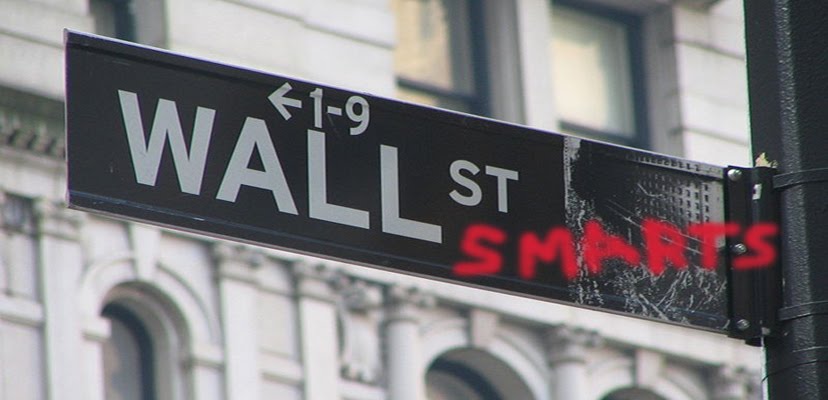WALL STREET SMARTS, THE BLOG, IS NOW WALL STREET SMARTS, THE BOOK. FULLY EDITED AND REVISED WITH NEW MATERIAL ON AMAZON
Having now spent some time in crowds with Mr. Mackay and Dr. Le Bon, it's time to move on to that crowd of one-you, the individual investor. If the stock market is anything, it is certainly risky. As an individual investor, you should understand how you approach risk. It pays to know yourself and your risk tolerance. Although you have lost the memories of when you first faced risk as a child, your parents' warning words are still buried in your subconscious. And like your parents back then, those cautions are guiding your actions today. Justin Mamis, an executive at the New York Stock Exchange and a specialist in technical analysis for many years, wrote several enlightening books about the market. The one we will focus on in this and subsequent posts is The Nature of Risk, Stock Market Survival and the Meaning of Life, written in 1991. Mr. Mamis goes back to the beginning to explain risk and how it is addressed by all of us, each in our own individual way. Here are excerpts from this classic:
The first word parents want a baby to understand and respond to is not Mama or Daddy--it's No. How is anyone going to learn to venture, to take a risk, when "No" resounds? Parents and baby may exchange smiles, but as soon as the baby wants to take a risk--that is, do something venturesome--the infant hears: "Don't touch that," Watch out," "Be careful." From infancy's earliest days, taking a risk becomes a negative concept. "Don't" becomes a family motto.
An infant knows no risk; all is ahead. Parents know all is risk, and try to protect. The child learns what the parents teach, and a world that starts out full of possibilities becomes full of limits and danger. We come into adolescence with fear of failure as a new risk: the opposite sex won't like you; the teachers don't believe in you; how are you ever going to be an adult unless you do what your parents say and take no risks? Stage fright, or its equivalent, is everywhere, and everywhere understood: the less you expose yourself, the less danger of failing.
You can see this in sports very clearly. The difference between the top tennis players in the world, and the next rung down, Billie Jean King once said, is not the strokes--at that level, strokes are approximately the same--but in the mental attitude. The top players play to win; the others play the game so as not to lose. When it gets to be match point, some players become tentative and hit the ball carefully. Often this kind of player is so fearful of losing that he actually double-faults at match point. The sense of ego risk does him in. In contrast, the top players continue to drive the ball from the first point to the last; when behind, they try to serve an ace. And by playing past the anxiety of the risk, they win. Ego risk, whether in sports, business, or the stock market, causes hesitation, faltering, and therefore, failure.
We grow up in such a pervasive atmosphere of caution that it becomes astounding when we read about, or see, someone who actually does take risks willingly, skillfully, successfully. And even more astonishing: there actually are a few people who never consider risk at all; they just do. How does one become able to venture forward without anxiety? How does one use risk positively? When all is risk, as war is, or the street, or cancer, there is no future. "What the hell" derives from that sense, in contrast to a more standard "The future is at risk" so "Be careful." Thus it is the fear of the future that risk magnifies.
Foolhardiness, defiance, sheer gambling, and other extremes aside, if there are ways to learn to evaluate what a risk is, and whether it is worth taking, and, indeed, whether it is actually less risky than not taking it - turning the notion of risk into a positive - it may be that we can translate such answers into our own too-often scared, too anxious behavior. Here we have a "security" - already there is a built-in semantic implication of anti-risk-taking that needs to be challenged. What is there about risk that can be used to produce better stock market performance?
The classic example of the effect of parental warnings is the child with his or her most precious possession, maybe a teddy bear or a doll, and a peanut butter sandwich (smart kid) standing at the corner of the block. When asked, the child explains, " I'm running away from home, but I'm not allowed to cross the street." We will learn more about risk from Mr. Mamis next time. To gain some insight into your own tolerance for risk, click on the link to take the Risk Tolerance Questionnaire at the Investment Strategies, Inc. web site.
If you would like to leave a comment, you can do so without going through all the steps of signing in. Just click the comments link, type your comment and pick the "Anonymous" profile. Feel free to add your name at the end of your comment. Comments are posted within 24 hours after received.
Excerpts from The Nature of Risk, Stock Market Survival and the Meaning of Life by Justin Mamis, copyright 1991 are used by permission of Mr. Mamis and Fraser Publishing Company.

No comments:
Post a Comment